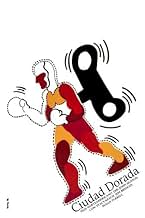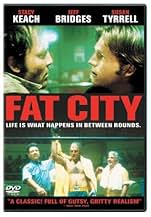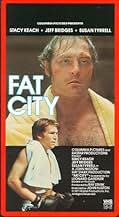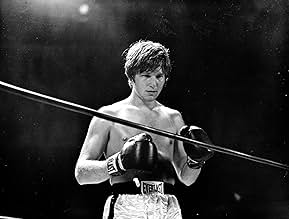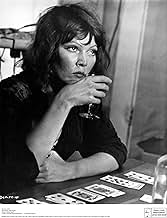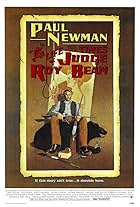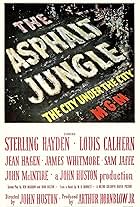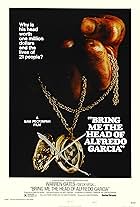Two men, working as professional boxers, come to blows when their careers each begin to take different directions.Two men, working as professional boxers, come to blows when their careers each begin to take different directions.Two men, working as professional boxers, come to blows when their careers each begin to take different directions.
- Nominated for 1 Oscar
- 4 wins & 4 nominations total
Álvaro López
- Rosales
- (uncredited)
Carl D. Parker
- Paymaster
- (uncredited)
Bill Riddle
- Boxer
- (uncredited)
Al Silvani
- Referee at Tully-Lucero Fight
- (uncredited)
Storyline
Did you know
- TriviaAccording to Stacy Keach, Sixto Rodriguez knocked him out during their fight scene and that shot appears in the film.
- GoofsDuring the bar scene, the barrette in Susan Tyrrell's hair moves all over the place from shot to shot.
- ConnectionsFeatured in Visions of Light (1992)
- SoundtracksHelp Me Make It Through the Night
Composed by Kris Kristofferson
Performed by Kris Kristofferson
© 1970 Combine Music Corporation
[Played over opening credits]
Featured review
John Huston is amazing to me. He defined an entire genre with his foot barely in the Hollywood door, then he kicked the door down and walked in to clear well deserved Oscars as both writer and director, he took his Oscars with him to Africa to get hammered with Erol Flynn and go out on safaris leaving behind him a big production to go to hell, then came back to find they had nailed a new door in place of the one he had torn down so he didn't bother to knock at all this time, he packed his things and went to a small dingy bar where Mexicans and barflies go to kill their time to make movies about killing time, movies about misfits and people who are dead inside, movies like Fat City and Under the Volcano, to adapt Flannery O'Connor and James Joyce, to soar above and beyond what anyone might have expected from any director of his generation. It's 1972 and John Huston is still relevant as ever. How many directors can you name who turned out some of their best material in their fifth decade directing movies? Venerable relics like Clint Eastwood move over, American cinema (not simply Hollywood) already had a patriarch in place long before any of you looked through a viewfinder.
It's also amazing to me how an indomitable absolute badass of a successful director can know failure so well. This is a movie where people box but it's not about boxing. There's no triumph to be had here and the crowd gathered in the small suburban boxing hall in Stockton, California, to pass their time is not there to be pleased. Most of them are probably the same kind of deadbeat with no future and a sh-tty job as the third-grade boxers who beat each other for their amusement. We get the young upstart boxer with the fast legs and a bright future ahead of him if only someone could train him right but this character can only make sense when we see him standing next to Stacy Keach, the aging boxer who won't see thirty again and who maybe had a chance once but blew it for women and alcohol and now he's desperate for one last throw of the dice.
The sad beauty of Fat City is that we're not looking at some kind of last defiant stand, we don't enter the ring for one last moment of triumph with the lights blaring bright and the crowd cheering, this is not The Wrestler anymore than it is Rocky, the lights were not only dimmed long ago but they probably never shone bright enough anywhere except in the protagonist's head. The closest Stacy Keach came to glory some odd 10 years ago was in itself a failure. Were his eyebrows slashed with a razor or not that fateful night down in Mexico we never find out. For most of its duration Fat City is a beaten man with sunken cheeks and a grim unshaven wan face wearing an expression of incredulous outrage.
Then we're inside a rundown cafe, the walls are painted in sickly washed-out colors and old men play cards around tables in felt, and we sit down for one last cup of coffee on the cheap formica counter. We see the young boxer standing next to the washed-up has-been one who can't even be a mentor anymore and an old man, a walking shell of someone "who was maybe young once", comes over to serve us and it all makes sense. "Maybe he's happy" says the young one. "Maybe we all are" says the other, and we know we're not, life doesn't quite work out that way, but it's all we have. The old man turns and smiles a toothless smile (senile or knowing, who's to say) and Fat City fades out into one of the most touching heartfelt endings I've seen. Fatalists cannot afford to miss this one, it's the stuff dashed hopes and broken lives are made of. Rejoice.
It's also amazing to me how an indomitable absolute badass of a successful director can know failure so well. This is a movie where people box but it's not about boxing. There's no triumph to be had here and the crowd gathered in the small suburban boxing hall in Stockton, California, to pass their time is not there to be pleased. Most of them are probably the same kind of deadbeat with no future and a sh-tty job as the third-grade boxers who beat each other for their amusement. We get the young upstart boxer with the fast legs and a bright future ahead of him if only someone could train him right but this character can only make sense when we see him standing next to Stacy Keach, the aging boxer who won't see thirty again and who maybe had a chance once but blew it for women and alcohol and now he's desperate for one last throw of the dice.
The sad beauty of Fat City is that we're not looking at some kind of last defiant stand, we don't enter the ring for one last moment of triumph with the lights blaring bright and the crowd cheering, this is not The Wrestler anymore than it is Rocky, the lights were not only dimmed long ago but they probably never shone bright enough anywhere except in the protagonist's head. The closest Stacy Keach came to glory some odd 10 years ago was in itself a failure. Were his eyebrows slashed with a razor or not that fateful night down in Mexico we never find out. For most of its duration Fat City is a beaten man with sunken cheeks and a grim unshaven wan face wearing an expression of incredulous outrage.
Then we're inside a rundown cafe, the walls are painted in sickly washed-out colors and old men play cards around tables in felt, and we sit down for one last cup of coffee on the cheap formica counter. We see the young boxer standing next to the washed-up has-been one who can't even be a mentor anymore and an old man, a walking shell of someone "who was maybe young once", comes over to serve us and it all makes sense. "Maybe he's happy" says the young one. "Maybe we all are" says the other, and we know we're not, life doesn't quite work out that way, but it's all we have. The old man turns and smiles a toothless smile (senile or knowing, who's to say) and Fat City fades out into one of the most touching heartfelt endings I've seen. Fatalists cannot afford to miss this one, it's the stuff dashed hopes and broken lives are made of. Rejoice.
- chaos-rampant
- Apr 17, 2010
- Permalink
- How long is Fat City?Powered by Alexa
Details
Contribute to this page
Suggest an edit or add missing content



